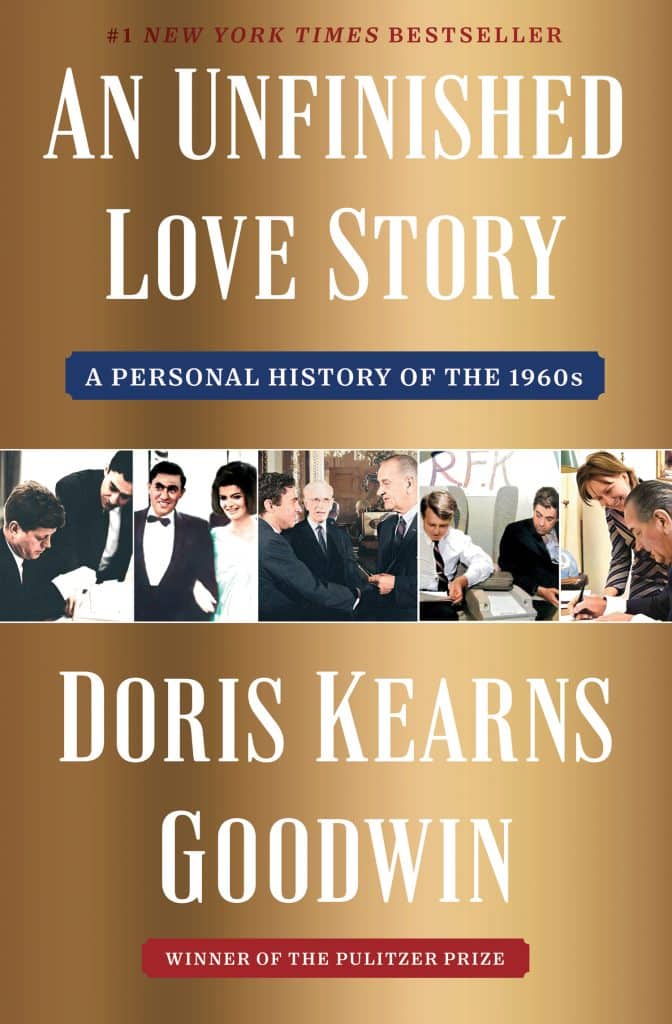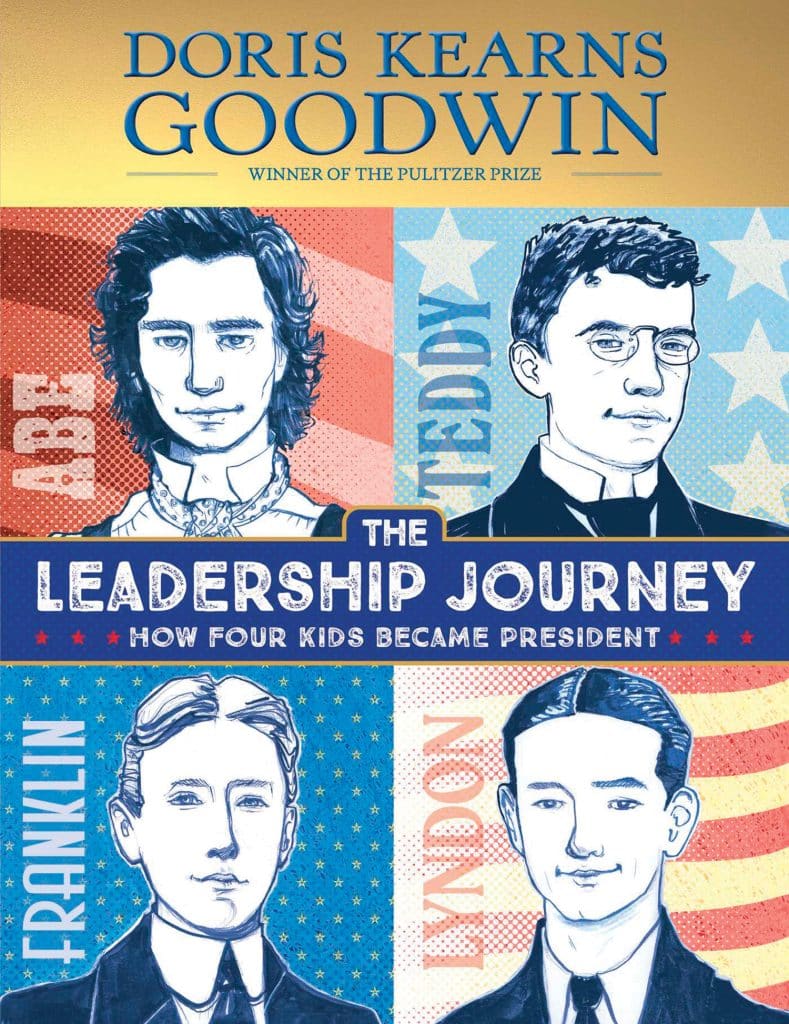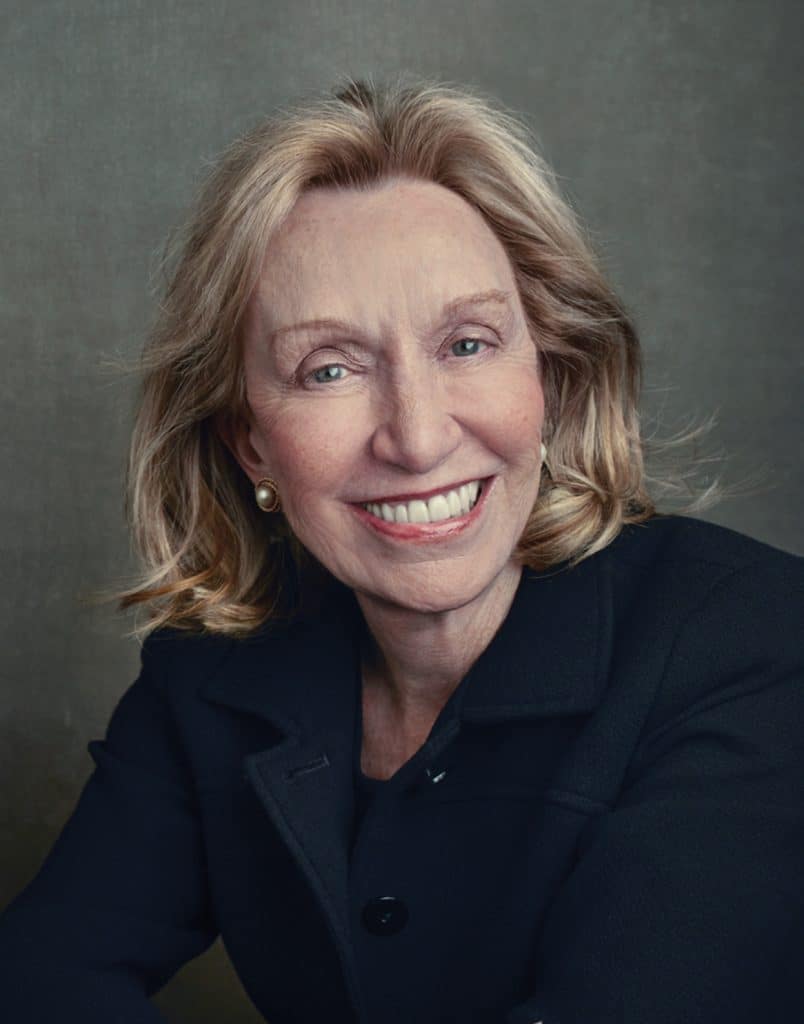Photo: Annie Leibovitz
by Steve Desroches
Mark Twain is often credited with saying, “History doesn’t repeat itself, but it often rhymes.” And students of history will tell you studying the past is all about explaining the now. Living and understanding current events is difficult in the best of times, never mind when news reports of the day continually use the word “unprecedented.” When thinking of all that happened just last month—the fallout from the presidential debate, an assassination attempt, an incumbent president not seeking a second term with an historic nominee to replace him—it’s a lot. How can one make sense of it all in real time? That’s when it is especially helpful to listen to people like Doris Kearns Goodwin, one of the United States’ preeminent historians and political commenters, who will share her expertise and analysis at the Mary Heaton Vorse House this Thursday.
Winner of the Pulitzer Prize in History for her 1994 book No Ordinary Time: Franklin and Eleanor Roosevelt: The Home Front in World War II, Goodwin indeed agrees we are living through a monumental moment in the history of the Republic, no doubt about it. As a citizen it can be frightening with all the uncertainty, but as an historian, particularly one that is revered for her work in presidential history and politics, it can be thrilling. If we are to look to the past to help make sense of today, where are the parallels? Has the country endured some of these stressors before, and how did it adapt? Goodwin points to various rhyming moments in history, like the 1860 election of Abraham Lincoln, which began the South’s march to secession as it disapproved of the results, similar to the violence the country saw on January 6, 2021, incited by Donald Trump’s lies about the 2020 election. And the disastrous performance by President Joe Biden at the presidential debate in June is reminiscent of the Kennedy/Nixon debate in 1960, which proved the power of television effectively ending Nixon’s chances. And in 1912, former President Theodore Roosevelt survived an assassination attempt while campaigning to get back in the White House, continuing his speech with a bullet in his chest. And then there are of course the similarities between President Biden and President Lyndon Johnson, who in 1968 decided not to seek another term in office. All of these events shook the nation, but one thing got America through.
“The country and its leadership came to meet the challenge,” says Goodwin. “It was leadership.”
Goodwin and her late husband Richard “Dick” Goodwin had front seats to history when each served in the Johnson administration, she as a fellow who the President hand-picked, despite her anti-Vietnam War sentiments, and he an aide and speechwriter who began his work in the Kennedy administration. Goodwin recounts all the moments the two could’ve met. They both attended the 1963 March on Washington and served in the White House at the same time, but never encountered each other until studying at the Institute of Politics at Harvard University in 1972. She recounts their experiences during the tumultuous decade of change in An Unfinished Love Story: A Personal History of the 1960s, a project she began with her husband as he sorted through his private archives. The pain of how the 1960s turned out, with assassinations and violence, kept them from examining much of their own contributions to everything from the Great Society to civil rights movements, much of which she’ll talk about during her appearance here in Provincetown.


The Leadership Journey, her new book for young readers, comes out in September.
Born in Brooklyn, Goodwin has long been a Massachusetts resident and is no stranger to Provincetown. She was first brought to town by a friend. She then spent the summer of 1971 living at the Figurehead House, where she worked on the initial draft of her first book Lyndon Johnson and the American Dream, which she was uniquely positioned to write as she assisted the President in writing his memoirs. And over the years the Goodwins came to Provincetown to visit their good friend Norman Mailer and to dine at all his favorite restaurants like the Mews, Sal’s, and Front Street.
“We always stayed with him and had such a good time,” says Goodwin. “I’m really excited to be coming back.”
The optimism of the 1960s still rides on Goodwin’s voice. Even in these trying times fraught with peril and anxiety, she remains an optimist, one rooted in reality, but with a palpable faith in American democracy and the better instincts of a motivated citizenry. “All changes come from the ground up,” says Goodwin. And she is impressed with the energy in support of Vice President Kamala Harris and how she has risen to the moment. When people organize to strengthen democracy and work to make a difference it’s always good for the country, says Goodwin.
Taking a moment to reflect, she says she does consider herself an optimist. The spirit of effecting change, expanding equality, and the betterment of all in our country is something to be excited by. And being an optimist is a powerful and impactful state of being in an election year. “I think there is no other choice but to be,” says Goodwin. “But it depends on believing things can change.”
East End Books Ptown presents Doris Kearns Goodwin in a conversation with Ken Fulk moderated by Kevin Sessums on Thursday, August 8, at the Mary Heaton Vorse House, 466 Commercial St., Provincetown, with a reception beginning at 5 p.m. and the event starting at 6 p.m. The event will be live streamed on East End Books Ptown’s Facebook page. Tickets ($50/$80) are available at saintjosephsartsfoundation.org or eastendbooksptown.com. For more information call 508.413.3225











